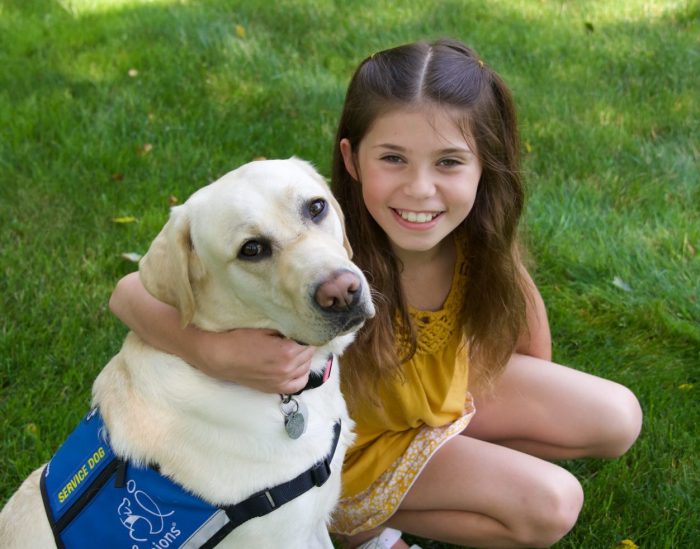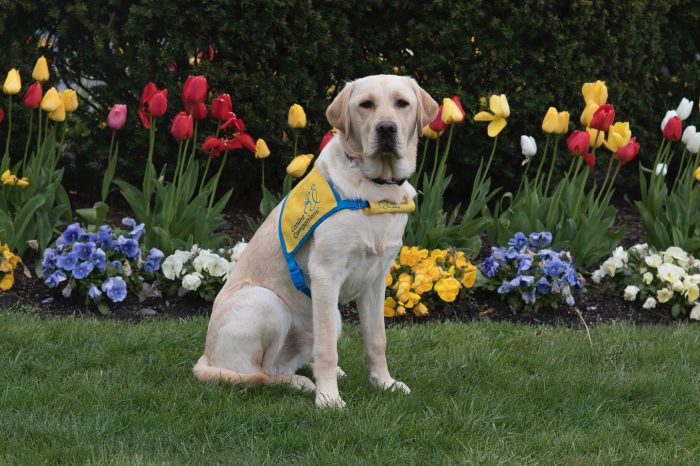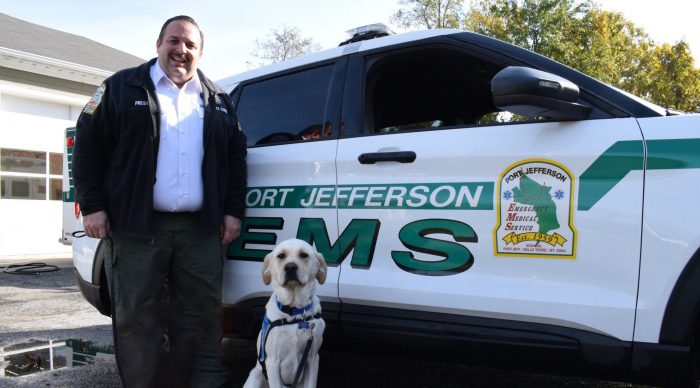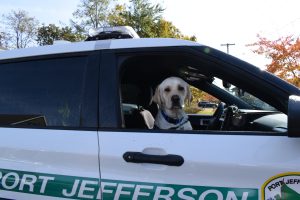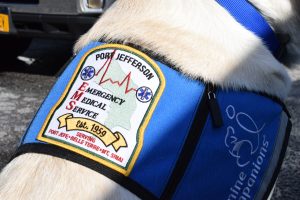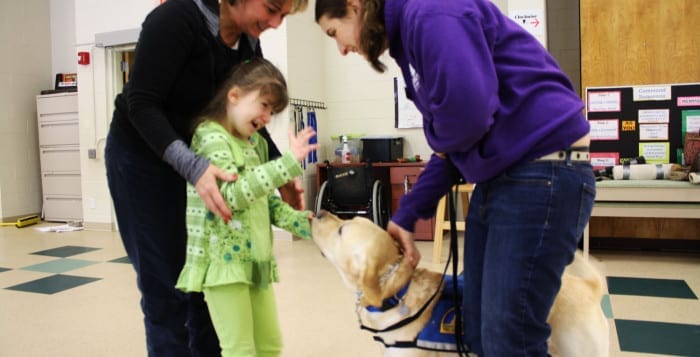By Amanda Olsen
Being matched with a service dog can sometimes feel like hitting the jackpot.
That’s certainly how Jamie Sileo, of Setauket, feels. Her daughter Drew, 10, and “best friend” Dasha, a pure yellow lab, were paired in October 2021.
“I always say we’ve won the doggy lottery,” Sileo said. “She’s just amazing.”
Drew has global developmental delays, executive function issues and ADHD. The pairing was made possible through Canine Companions, whose northeast location is based in Medford. The organization is the nation’s largest provider of service dogs, at no cost to the recipient.
When Sileo first started looking for a dog, she first contacted the Guide Dog Foundation of Smithtown.
“I knew that with her needs, getting a puppy would be very hard,” the mother said. “So I called the Guide Dog Foundation and asked them about it. And they said that we don’t do it, but you can call Canine Companions. It took one month shy of two years to get the call to join team training and get matched with a dog. It took a long time, but we were patient.”
When they finally got Dasha, she integrated into their lives immediately.
“I think it’s better than we thought it would be,” Sileo said. “I didn’t realize how highly trained these dogs are, and how they’re bred to be such amazing, kind animals. They’re very routine based, so the dog just kind of fell right in with everything that we do.”
These dogs spend 18 months with a puppy raiser and then graduate to formal training at the Medford center. Training focuses not only on commands but also behavior. These dogs have a job to do, and they take it very seriously.
“She really knows when her vest is on that she’s working,” the mother said. “If we’re going to a restaurant, most people will tell us, ‘We didn’t even know there was a dog in the restaurant,’ because she’s quiet. She just lays under the table. They’re trained to not touch anything off the floor, So they don’t touch a single piece of food or anything. We take her with us, even if we just run into the grocery store.”
All Canine Companions service dogs learn the same commands, including retrieving dropped items as small as a dime, pulling a manual wheelchair, and turning light switches on and off. Certain commands are more useful for Drew and Dasha than others. Dasha helps with Drew’s sensory needs and keeps her safe.
“She does cover, which is basically like laying across her lap to apply pressure and fulfill her sensory needs,” Sileo said. “We also use the push command. If we’re upstairs getting dressed, and she’s got her drawers open, the dog will help push things closed. Drew has a tendency to get up and then not realize that it’s the middle of the night. So, if she does get up, the dog stays with her.”
For anyone considering raising a puppy for Canine Companions, Debra Dougherty, executive director of the Northeast region, emphasizes commitment over experience.
“We’re looking for someone that’s committed,” Dougherty said. “Someone that wants to give back. It’s a great experience raising a puppy and then watching it go on to help someone.”
There is an extensive support system for puppy raisers to draw from, and previous dog experience is not required.
“We go through a process with them,” she said. “They apply, and then we do a phone interview with them. Then we have them come to a couple of classes on our Medford campus to observe and maybe talk to some of the other raisers. At that point, if they’re still interested, then they go on the waitlist. When they get a puppy we have a pretty structured program for them. We try to pair people up with a mentor if they want, someone who has more experience so that they have someone to go to. So it’s not necessary for someone to have raised a dog before, because we support them.”
Dougherty also wants people to be mindful of the future recipient, and the weight and emotion attached to their decision to raise a puppy.
“Be open to new things and have a big heart to share with that puppy as well as with the recipient,” she said. “It is a commitment because these dogs are bred for a very special purpose and you know the end purpose, you know the end goal being to be matched with a person with a disability to help them. So we want them to be serious about it.”
As the family of a Canine Companions service dog, Sileo is thankful.
“I’m forever grateful for all the puppy raisers out there,” the mother said. “We can’t thank Canine Companions enough for this opportunity. Because of the puppy raisers, trainers, and the generosity of the donors and everyone in between, my daughter was able to receive this beautiful and extremely smart dog named Dasha. Dasha has improved Drew’s life in so many ways from daily routines and her speech to social interactions and anxiety control. Dasha is such a welcome part of our family, and everyone who meets her just falls in love.”

